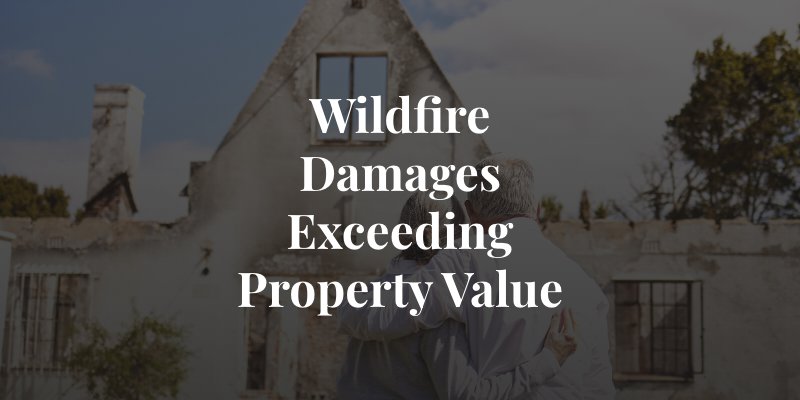A wildfire can have devastating consequences for your family, including the loss of your beloved home. Many homeowners would rather pay to rebuild their homes for sentimental value than buy new elsewhere, even if the cost of repairs exceeds the home’s market value. This fact is why the California Supreme Court finalized a ruling requiring insurance carriers to offer this choice to policyholders. For legal assistance with a wildfire claim surrounding your home, contact our wildfire lawyers for a free consultation.

Recent Changes to California’s Wildfire Coverage Laws
In the past, an insurance company would choose to pay the lesser of the two in a wildfire damage claim: either the price of repairing the home to its pre-wildfire condition or the fair market value of the property. Thanks to a recent ruling, however, policyholders in California are now given the right to choose for themselves which they would prefer, regardless of which costs less.
A California Supreme Court ruling in 2017 declared that homeowners are entitled to insurance coverage for the cost of repairing a badly damaged home – even if the price of repairs far exceeds the market value of the property. The court came to this decision after recognizing the intangible value that homes have to policyholders outside of economic worth.
While this new right is a significant victory for homeowners, navigating the complexities of insurance claims and understanding how this ruling applies to their specific situation can be challenging. For residents in areas like Eaton and surrounding communities who have been affected by wildfires, seeking guidance from a knowledgeable Eaton Fire attorney is often the best course of action.
Your Legal Rights as a California Wildfire Victim
State law now gives property owners in California flexibility in how they choose to use their insurance benefits to recover from wildfire damage. As a homeowner, you have options. If your home is badly damaged, you can choose to repair it and your insurer can pay up to the limits of your policy. You can also choose to demolish the home and rebuild on your original lot or a different lot. Finally, you could use your insurance money to buy a different home entirely.
How to Handle Your Wildfire Property Damage Claim
Despite the law in California, claimants may still struggle when dealing with insurance company claims adjusters due to the fact that insurance providers put profits over people. If the price to repair or restore your home far exceeds the market value of your property, you can likely expect pushback from your insurance provider during the claims process.
Keep these tips in mind when negotiating your wildfire property damage settlement:
- Contact your insurance provider to notify them of the wildfire damage as soon as possible.
- Do what you can to mitigate further damage, such as covering your windows to prevent rain damage.
- Hire your own property appraisers and contractors to get fair repair estimates.
- When speaking to an insurance representative, keep your answers to questions short.
- Do not agree to give the insurance company a recorded statement regarding your losses.
- Do not quickly accept the first settlement offered to you; it may be a lowball offer.
- Negotiate for the true cost of your repairs by submitting counteroffers and work estimates.
- Know that you have the right to hire a lawyer to help you with the claims process, if necessary.
If your property insurance company refuses to offer a reasonable settlement for wildfire damage home repairs, consult with an attorney for assistance. Hiring an attorney can improve your odds of achieving the case result you need to rebuild and restore your home to its former glory. An experienced wildfire lawyer in California can aggressively negotiate for a fair settlement on your behalf – or bring your case to trial for maximum compensation, if necessary.
